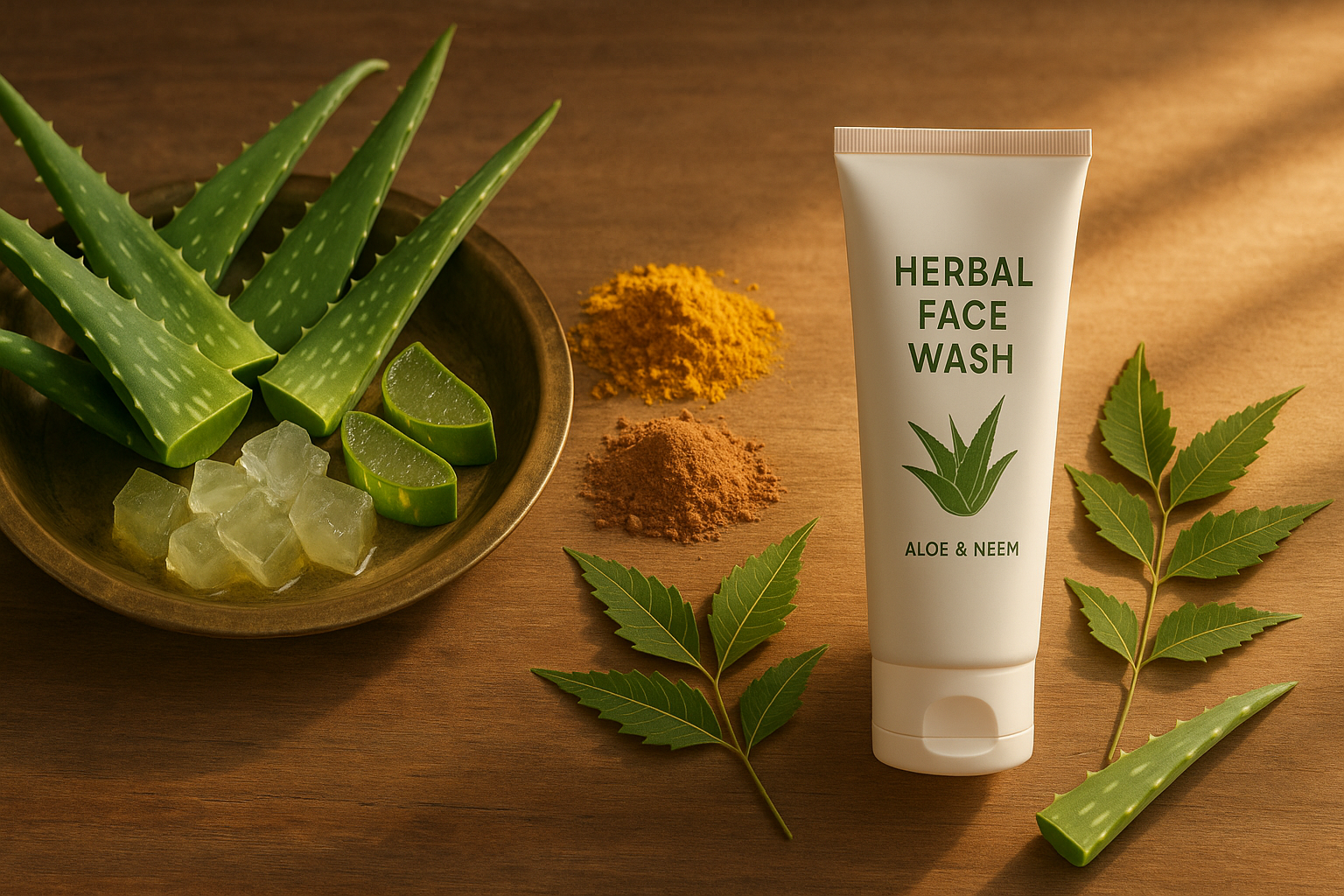
An ancient leaf with timeless power for skin, health, and healing.
From the sands of Rajasthan to the courtyards of South Indian homes, Aloe Vera has always been more than just a plant — it’s been a healer, a cooling balm, and a skincare savior for centuries in India.
While global beauty brands now market aloe as the “latest miracle ingredient,” India has always known its value, long before packaging and trends.
Let’s dive into how Aloe Vera evolved in Indian culture, from ancient medicine to your modern skincare routine — and why it still deserves a place on your bathroom shelf.
The Sanskrit name for Aloe Vera is “Ghritkumari”, which means “young girl full of vitality.” That says it all.
In Ayurveda, aloe is considered a “Rasayana” — an ingredient that promotes longevity, health, and beauty.
Its thick, transparent gel contains over:
75 active compounds
Vitamins A, C, E, and B12
Enzymes, minerals, and amino acids
These compounds made it useful for everything — from wound healing to skincare, digestion to hair care.
Aloe was prescribed to cool the body, especially for Pitta-related imbalances (heat, acne, inflammation)
Used to treat skin burns, dryness, rashes, and digestion issues
Given as juice, gel, or fresh leaf application
Queens of Rajasthan & Kerala used aloe pulp to soothe sunburn after palace life or royal processions
Aloe mixed with turmeric and sandalwood was applied as a post-bath skin revitalizer
Even today, aloe continues to be one of the most powerful natural ingredients in skincare because of its:
✅ Soothing properties – calms inflammation, rashes, sunburn
✅ Deep hydration – penetrates skin layers and holds moisture
✅ Anti-bacterial and anti-fungal – prevents acne and skin infections
✅ Anti-aging benefits – improves skin elasticity and reduces wrinkles
✅ Healing power – accelerates repair of cuts, wounds, and acne scars
That’s why it’s found in face gels, after-sun creams, moisturizers, and even shaving products.
While other “new” ingredients rise and fade, aloe vera remains timeless. The reason?
It works on all skin types — oily, dry, sensitive
Pairs well with Indian herbs like neem, tulsi, and turmeric
Safe for daily use with zero side effects
Brands like Alkmen Lifecare embrace this herbal legacy by creating skincare that’s rooted in ancient Indian traditions, without harsh chemicals or fake “herbal” labels.
At Alkmen, we don’t use aloe just for marketing. We use it because it truly:
🌿 Heals the skin deeply
🌿 Balances hydration without oiliness
🌿 Enhances the power of other Ayurvedic herbs
Our Aloe Neem Face Wash uses real aloe vera extract — not synthetic fragrance or gel base — to calm, cleanse, and hydrate your skin gently, every day.
It’s our way of honouring India’s botanical legacy, with honesty and effectiveness.
Before beauty influencers, there were Ayurvedic healers.
Before sheet masks, there were homemade aloe pastes.
And before artificial skincare, there was trust in plants like aloe.
So next time you reach for skincare, ask yourself:
“Is this rooted in healing… or just in hype?”
🌱 Trust the plant that’s been trusted for thousands of years.
Trust aloe vera.
Trust skincare that respects history — and your skin.
Get early access to offers, skincare tips & plant-powered wisdom.
© 2025 Alkmen Lifecare | All rights reserved. Design by Alkmen Infotech